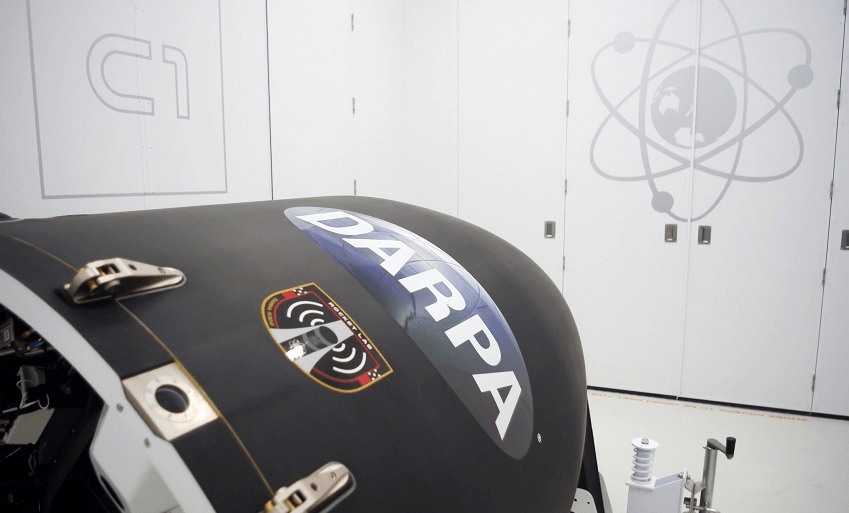The Kiwi success story is working for an agency that developed stealth aircraft and the scheme to bombard Vietnam with Agent Orange.
After weather delays and problems with a dodgy video transmitter, Rocket Lab finally launched its first mission of 2019 this week.
As it’s usually told, the story of New Zealand’s entrance into the space age is one of huge ambition and plucky entrepreneurism. It’s the story of how a self-taught rocket engineer from Southland built a billion-dollar company out of nothing, and how a far-sighted government created the world’s most durable regulatory regime for space.
Lift-off! The Electron #R3D2 mission, launched from Rocket Lab Launch Complex 1 at 23:27 UTC on 28 March 2019. #OpeningAccessToSpace pic.twitter.com/bXq2aJPU1I
— Rocket Lab (@RocketLab) March 29, 2019
But it’s becoming clear that there’s more to this story, that Rocket Lab’s success rests on a long history of work for military agencies, and that New Zealand is fast becoming a launch pad for US military payloads.
Unlike previous launches – which have been rideshares of satellites for a mix of different customers – Rocket Lab’s latest launch was reserved entirely for one of its oldest clients: the US military agency known as DARPA, or the Defense Advanced Research Projects Agency.
It is the second DARPA-related launch from New Zealand, after a rideshare mission in December included a NASA-designed satellite that will conduct research for DARPA on improving the performance of a radar system used by the military to detect missiles and stealth aircraft.
But amid the fanfare surrounding the launch (commemorative t-shirts are going for $32 a pop), you could be forgiven for overlooking just how awkwardly the DARPA payloads sit with New Zealand’s stated commitment to the peaceful use of outer space. And given the lack of public discussion around this issue, you might just fall for the spin: That DARPA is just the thing that created the internet, and what happens in space can only be good for what happens on Earth.
According to Rocket Lab’s press kit for the launch, DARPA “is a US Government organisation and an innovation icon”. It has created “breakthrough technologies that have had sweeping societal and economic impacts”, such as portable GPS, voice-recognition software and the precursor to the internet.
This is all true. But DARPA’s breakthroughs also include drones, stealth aircraft and laser weapons, as well as the scheme to bombard Vietnam with toxic chemical defoliants such as Agent Orange. The societal impacts in that case included mass deforestation and the deaths of around 400,000 Vietnamese.
And yes, DARPA (or ARPA as it was then known) did create ARPANET, the precursor to the modern internet. But this arose from the need for more sophisticated Cold War counterinsurgency tools and for a military communication network that could survive nuclear attacks.
DARPA is fundamentally a military agency. The civilian benefits of its work are happy side-effects of its primary purpose: “To maintain and advance the capabilities and technical superiority of the United States military.”
The same goes for this week’s launch from New Zealand.
Yet if you were to read the publicity material alone, the impression you’d get is that the only point of the “R3D2” mission, as it’s called, is to test a new kind of antenna, one that will allow greater capabilities in smaller satellites.
Speaking to the New Zealand Herald, Rocket Lab CEO Peter Beck acknowledged that the antenna had a military communication application, but said that “there is equal amount of interest in it being used for commercial purposes as well”.
Antenna aside, the Ministerial briefing for the launch – provided under the Official Information Act in a redacted and summarised form – states another purpose: “For the [US Department of Defense] to test its ability to rapidly develop and launch a spacecraft.”
This is revealing. Space infrastructure is critical to military operations on the ground, but the US military considers this infrastructure vulnerable in an increasingly contested space environment. In response, US military leaders have called for more rapid launch capabilities so that disabled space assets can be swiftly replaced during conflict.
This week, Rocket Lab has shown the US military that it can provide this capability.
Like all launches from New Zealand, the R3D2 was approved by the Minister for Economic Development, David Parker, on the advice of the New Zealand Space Agency, which sits within the Ministry of Business, Innovation and Employment (MBIE). The officials’ advice in this case was that “this payload does not trigger any national interest concerns”.
But after only four orbital launches the legal regime may be lacking in transparency, both with the public and the Minister. Indeed, MBIE does not appear to have advised the Minister of DARPA’s involvement in the December launch, as The Spinoff reported at the time.
Properly briefed on the launch’s military objectives this time, the Minister has approved the mission. New Zealand remains a close military ally and intelligence partner with the US, however much that fact may jar with many New Zealanders two years into the Trump administration.
Like the tech industry generally, the space industry is entangled with military interests. But as demonstrated by the workers at Microsoft and Google who have protested their employers’ involvement in major army contracts, these ethical dilemmas can and should be publicly confronted.
Even one of Rocket Lab’s biggest supporters has done so. In 2011, Rocket Lab’s seed investor, Mark Rocket – a man who changed his name by deed poll to match his passion – parted ways with the company over concerns about its military work.
It is time for New Zealand to ask a similar question.
